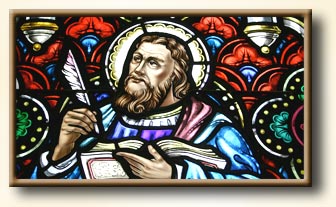|
We commonly call them Morning and Evening Prayer, or sometimes by the older terms Matins and Evensong. Together they are known as The Daily Offices, and the Book of Common Prayer provides for them to be said (or sung) daily throughout the year.
In ancient times there developed a regular round of daily services to be sung or said by monks, priests and nuns, and these came to full flower by the sixth century. These services were eight in number: Matins, Lauds, Prime, Terce, Sext, Nones, Vespers and Compline.
Archbishop Thomas Cranmer, the chief architect of the Book of Common Prayer, took these eight Offices (or, to be exact, took five of them) and translated, simplified, rearranged and condensed them into two very similar services, Morning Prayer and Evening Prayer. He and later revisers also added a few details not originally part of the former “Choir Offices.”
The result is two services greatly beloved by Anglicans and familiar to all. It must be added, however, that as Church practices has developed, these Offices have tended to become Sunday services only, as far as the laity and many priests are concerned, contrary to the original intention that they should have daily use. Moreover in many churches, they have become the principal Sunday service on some or many Sundays, which was certainly not the Prayer Book’s intent. They have also, in practice, often added a sermon, for which there is actually no provision whatever in the Prayer Book Order.
None of this negates the fact that these services are beautiful and satisfying structures of worship. They take the worshipper through an orderly round of Bible selections and Psalms (actually, if read daily, they would cover all the Psalms in a year.) They include an Old Testament reading, thus remedying a lack in the Liturgy of the Holy Communion, which had included such readings in pre-Reformation days.
Most of the prayers and canticles used in morning and Evening Prayer are restatements of Scriptural passages. The General Confession, for example, had been called a “tissue of Biblical phrases,” taken out of both the Old and New Testaments. So is the Declaration of Absolution. The Venite comes straight from Psalms 95 and 96. Both the Benedictus es and the Benedicite are taken from the Apochryphal “Song of the Three Children.” The Benedictus is taken from the Gospel according to St. Luke and is Zacharias’ song of praise for the birth of his son, John the Baptist, whom the angel Gabriel had indicated to him would be a precursor of the Lord; while the alternative canticle, the Jubilate Deo, is Psalm 100.
Similarly, in Evening Prayer, the great canticle, the Magnificat, also from the first chapter of St. Luke, expressed Mary’s rejoicing on the occasion of her visit to Elizabeth, the mother of John the Baptist. (The alternatives to this canticle are both Psalms). As the Magnificat looks forward to the Incarnation, the Nunc dimittis looks back to it as an accomplished fact, breathing a spirit of peace, thanksgiving and hope; it is taken, of course, from St. Luke’s second chapter.
Non-scriptural is the hymn known as the Te Deum. The Gloria in excelsis, an alternative to the Gloria Patri in Evening Prayer, is also nonscriptural. These are considered to be the two greatest hymns of the Church, both West and East. The Te Deum laudamus is a magnificent exclamation of praise in its restatement of the credal doctrine of the Trinity. It probably originated in the fifth century. The petitions which constitute the last seven verses of this hymn were not originally part of it. The Te Deum is so majestic that it is sometimes used as a service of thanksgiving on occasions of special rejoicing.
Morning and Evening Prayer end with Collects and Prayers taken from a wide variety of sources -- the Bible; ancient Sacramentaries (collections of prayers), the Prayer for Clergy and People being an example; an English bishop (Peter Gunning, of Chichester, 1670-1674), who composed the Prayer for All Conditions of Men; Queen Elizabeth I, who originated the General Thanksgiving, revised in its present form by another English Bishop (Reynolds of Norwich, 1661-1676), etc. A Prayer of St. Chrysostom comes from the fifth century Greek liturgy. The two Offices conclude with the Grace, a slightly altered version of the final verse of St. Paul’s second Epistle to the Corinthians.
The Daily Offices (including Morning Prayer, whether used separately or as a preface to the Holy Eucharist) are models of the fullness, the beauty and the ordered structure of Christian worship. They are among the many Anglican treasures.
|



